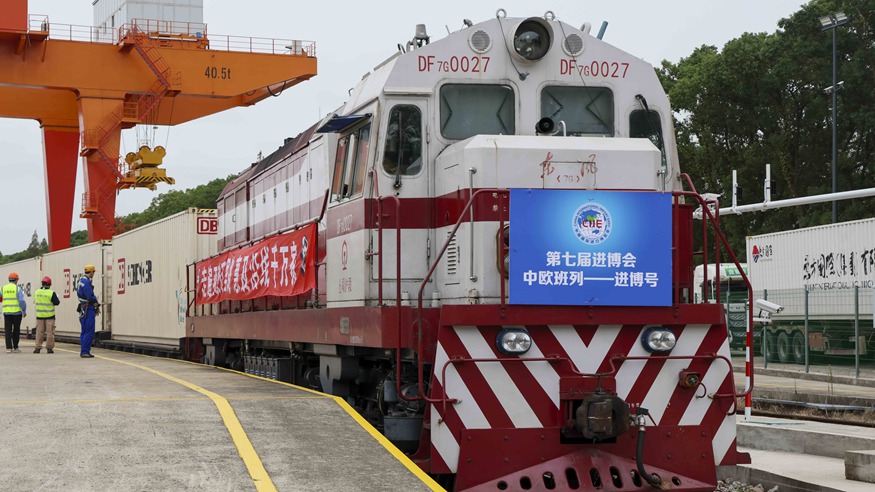Roundup: Year-long Gaza war has set development in Palestine back nearly 70 years -- UN report
Source: Xinhua
Editor: huaxia
2024-10-23 06:09:15
Projections estimated that gross domestic product (GDP) for Palestine will contract by 35.1 percent in 2024 compared with a no-war scenario, with unemployment potentially rising to 49.9 percent.
UNITED NATIONS, Oct. 22 (Xinhua) -- The impact of the year-long war in the Gaza Strip, alongside with escalations in the West Bank, has set development in Palestine back by about 69 years, with poverty possibly rising to 74.3 percent in 2024, according to a UN report published on Tuesday.
"Without lifting economic restrictions, enabling recovery, and investing in development, the Palestinian economy may not be able to restore pre-war levels and advance forward by relying on humanitarian aid alone," said the report released by the UN Development Programme (UNDP) and the UN Economic and Social Commission for Western Asia (UNESCWA).
The report, titled "Gaza war: Expected socioeconomic impacts on the State of Palestine," presented three recovery scenarios for Palestine. Given that the recovery will be a long-term process, the report assessed both the immediate impact projected for 2025 and the long-term impact anticipated by 2034, a decade after the start of the conflict.
Projections estimated that gross domestic product (GDP) for Palestine will contract by 35.1 percent in 2024 compared with a no-war scenario, with unemployment potentially rising to 49.9 percent.
Building on findings published in November and May, the report estimated that poverty in Palestine will rise to 74.3 percent in 2024, affecting 4.1 million people, including 2.61 million people who are newly impoverished.
The assessment also examined the extent and depth of deprivation, employing multidimensional poverty indicators and including recovery prospects for Palestine after a ceasefire is reached.
According to the analysis, the non-restricted early recovery scenario sees restrictions on Palestinian workers lifted and withheld clearance revenues restored to the Palestinian authority. In addition to 280 million U.S. dollars in humanitarian aid, 290 million dollars is allocated annually for recovery efforts, resulting in an increase in productivity by 1 percent annually, enabling the economy to recover and putting Palestinian development back on track.
The assessment suggested that a comprehensive recovery and reconstruction plan, combining humanitarian aid with strategic investments in recovery and reconstruction along with lifting economic restrictions, could help put the Palestinian economy back on track to realign with Palestinian development plans by 2034.
However, this scenario can only play out if recovery efforts are unrestricted, said UNDP Administrator Achim Steiner. "Projections in this new assessment confirm that amidst the immediate suffering and horrific loss of life, a serious development crisis is also unfolding -- one that jeopardises the future of Palestinians for generations to come."
Steiner said the assessment indicates that "even if humanitarian aid is provided each year, the economy may not regain its pre-crisis level for a decade or more."
As conditions on the ground allow, the Palestinian people need a robust early recovery strategy embedded in the humanitarian assistance phase, laying foundations for a sustainable recovery, he said.
"Our assessments serve to sound the alarm over the millions of lives that are being shattered and the decades of development efforts that are being wiped out," UNESCWA Executive Secretary Rola Dashti noted.
"It is high time to end the suffering and bloodshed that have engulfed our region," Dashti highlighted. "We must unite to find a lasting solution where all peoples can live in peace, dignity and reap the benefit of sustainable development and where international law and justice are finally upheld." ■













Comments